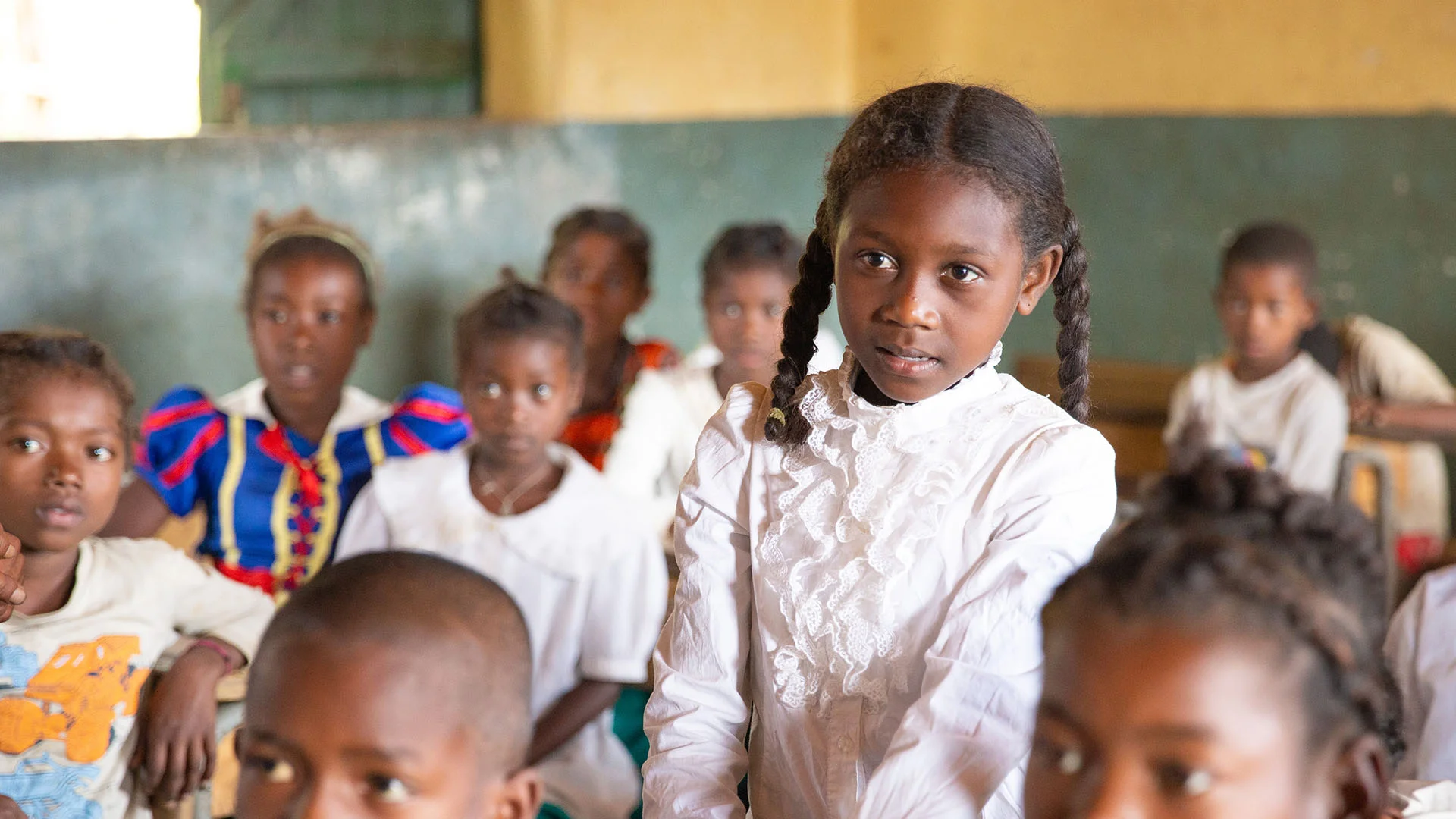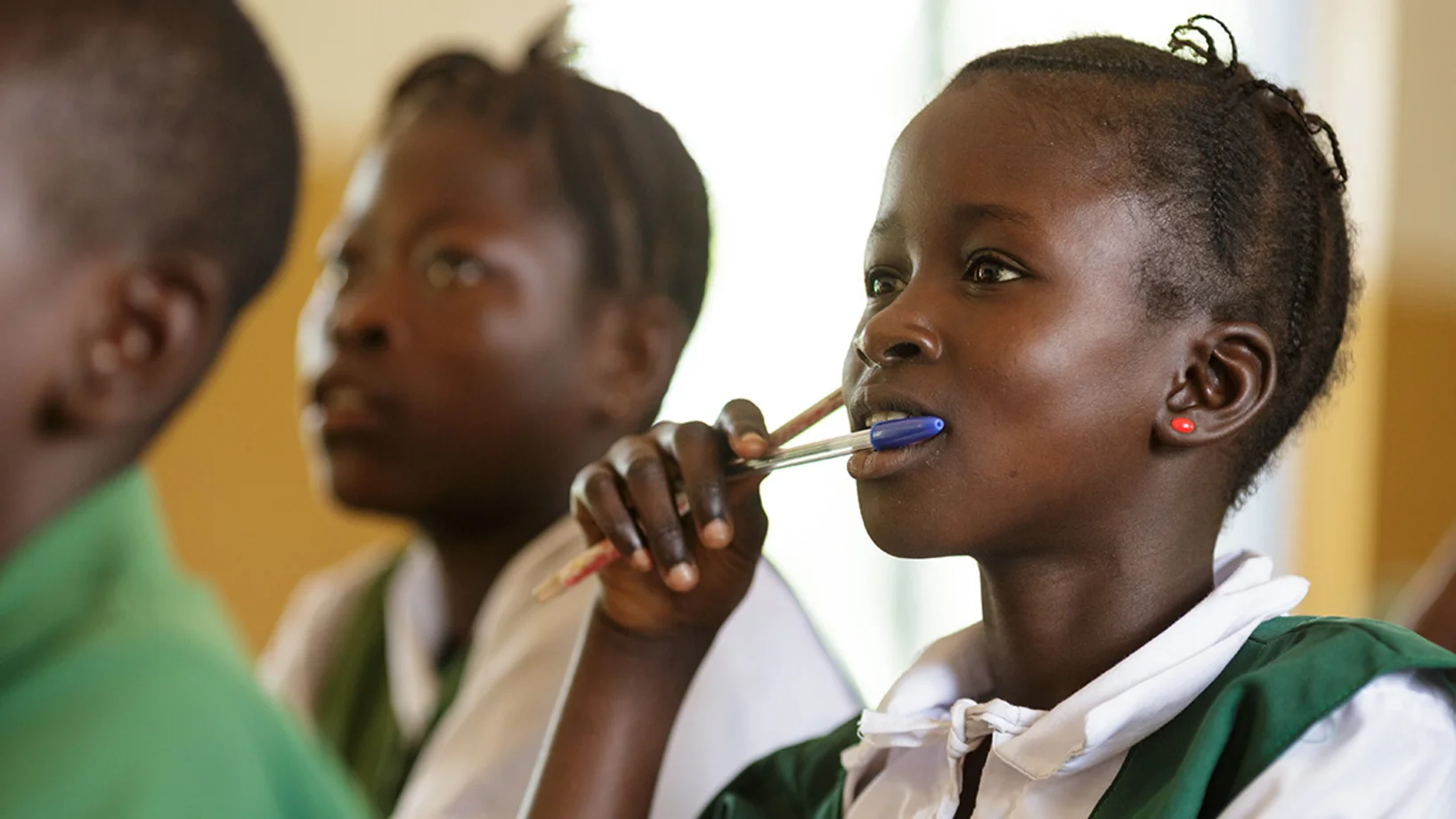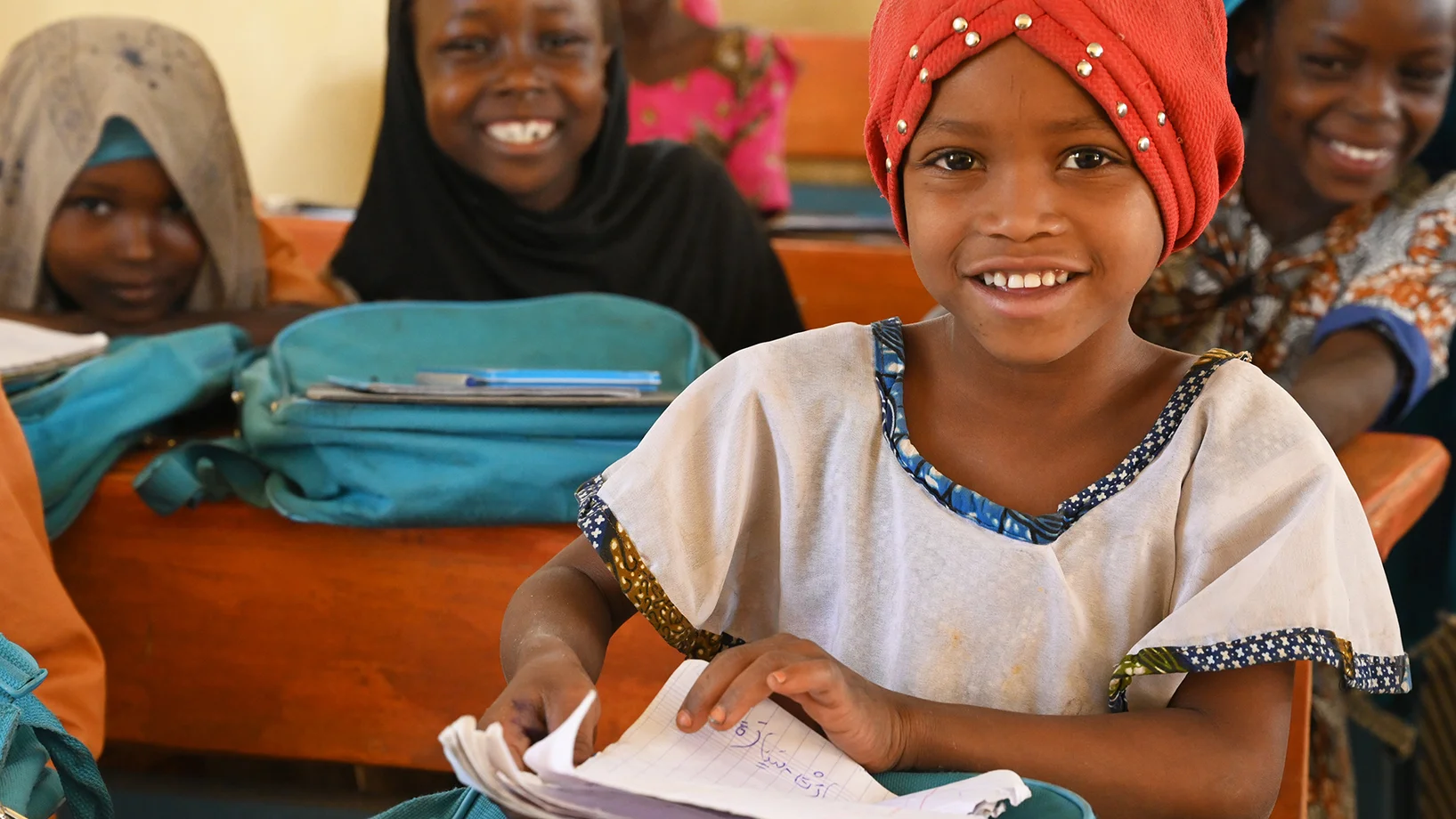Every child has the right to an education. More children attend school today than ever before, but many finish school without the knowledge and skills to develop to their full potential. UNICEF is therefore doing everything it can to alleviate this global education crisis.
The situation
The near universalization of primary education is one of the great global achievements of the last 50 years. In the early 1950s, for example, around half of primary-age children did not attend school. Today, thanks to global efforts, nearly nine out of ten elementary-level children are able to attend school. Getting children into school is one thing, but educating them well over the course of four years and keeping them in school is another altogether. Poor infrastructure, insufficiently qualified teachers, a lack of school supplies and long distances to school mean that many parents prefer to keep their children at home.
Today, 70 percent of all 10-year-old children are unable to read and understand a plainly written text. Before the pandemic, it was 57 percent. This illustrates the long-term and far-reaching effects of the COVID-19 pandemic, particularly on education.
In this context, education is both the key to a child’s personal development and a catalyst for social mobility, equal opportunities and economic development for an entire country.
How your donation helps
To address this global education crisis, UNICEF is committed to equal access to education for all, better learning and teaching methods, and safe learning in crisis situations and other fragile contexts. In 147 countries around the world, UNICEF offers programs to give children and young people the knowledge and skills they need to develop successfully.
UNICEF is committed to improving educational systems to provide children all over the world with sustainable access to quality education, improve their chances for the future and fight inequality in global education. UNICEF achieves this through investing in teaching staff, improving school infrastructure and lobbying for educational reforms at the national and international level.





